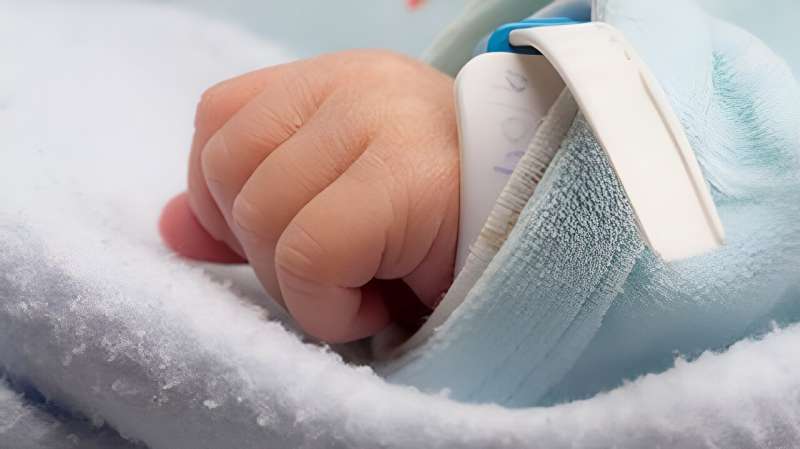This article has been reviewed according to Science X's editorial process and policies. Editors have highlighted the following attributes while ensuring the content's credibility:
fact-checked
peer-reviewed publication
reputable news agency
proofread
Placental group B strep tied to neonatal unit admission in infants born at term

Detection of Streptococcus agalactiae (Group B Streptococcus; GBS) in the placenta is associated with an increased risk for neonatal unit (NNU) admission, according to a study published online Nov. 29 in Nature Microbiology.
Francesca Gaccioli, Ph.D., from the University of Cambridge in the United Kingdom, and colleagues reanalyzed a dataset that previously detected GBS DNA in the placenta in about 5 percent of women before onset othe f labor as a case-control study of NNU admission.
The researchers found that among the infants born at term, 7/30 with placental GBS and 34/406 without placental GBS were admitted to the NNU (odds ratio, 3.3). In a validation study using nonoverlapping subjects from the same cohort, with 239 cases of term NNU admission and 686 term controls, 16/36 with placental GBS and 223/889 without were admitted to the NNU (odds ratio, 2.4). Of the 36 infants with placental GBS, 10, two, six, and five were admitted to the NNU with evidence of probable but culture-negative sepsis, with proven GBS sepsis, with chorioamnionitis, and with funisitis (odds ratios, 4.8, 66.6, 5.3, and 6.7, respectively). In 36 percent of infants with placental GBS DNA and 4 percent of cases where the placenta was negative, fetal cytokine storm was present (odds ratio, 14.2).
"When analyzed by the cause, we found that the association was explained by increased rates of admission with probable but culture-negative sepsis and with culture-positive proven GBS sepsis," the authors write.
Several authors disclosed ties to the biopharmaceutical industry.
More information: Francesca Gaccioli et al, Placental Streptococcus agalactiae DNA is associated with neonatal unit admission and foetal pro-inflammatory cytokines in term infants, Nature Microbiology (2023). DOI: 10.1038/s41564-023-01528-2
Copyright © 2023 HealthDay. All rights reserved.



















